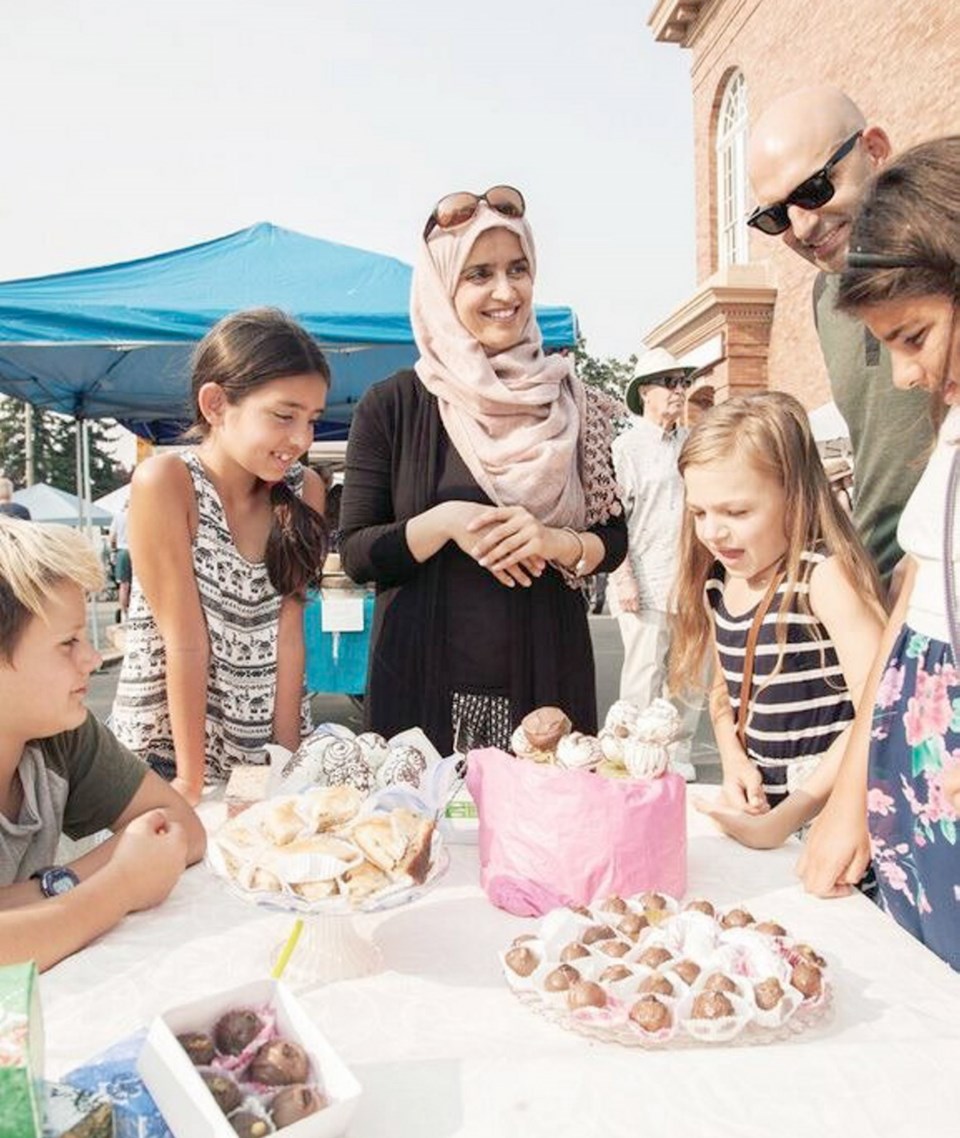When Fayrouz Mohammed and her family moved to Victoria from Libya in 2003, she hoped to get settled and continue her career as a high school teacher and pursue her dream of becoming a fashion designer.
“I was expecting a big city, but found Victoria to be more of a small town,” said Mohammed, 40, who is a case worker at the Victoria Immigrant and Refugee Society and the mother to four children ages two to 13.
“It was more challenging than I hoped, especially to find any job,” she said.
Mohammed was one of several Greater Victorians profiled in the Victoria Foundation’s 2017 Vital Signs report, released today. The annual report uses a survey and public data to provide a picture of well-being in the community and what issues are important to residents. This year and last have focused on the theme of belonging in the community.
The report states, “Belonging is about feeling like an accepted and valued part of a community . . . and looks at how institutions, policies and social structures create a deeper sense of belonging and inclusion.”
Mohammed shared how some of the issues that face all Greater Victorians can be more challenging for newcomers, regardless of whether they feel welcomed by other residents.
“Most people are nice and open, and very helpful. But housing is a real-life challenge. If you can’t find a home, you don’t feel settled,” said Mohammed, who has lived in family housing at the University of Victoria, where her husband completed his doctoral degree, as well as rental homes through B.C. Housing.
“It’s especially difficult for larger families, which many of the new Syrian families are,” Mohammed said. Since 2015, 415 refugees from 47 families moved to Victoria. “You need three or four rooms. This is hard to find and then you might have to move.”
In the report, housing and the cost of living were listed as the most important issues in the region. Housing was given a grade of C-, with affordability of rent and home ownership as well as alternative models such as co-ops needing change.
Mohammed said employment has also been a challenge for her family.
“My husband was lucky to find a job, because everyone wants Canadian experience,” said Mohammed, whose husband is a software developer.
But she has struggled to find flexible work that allows her to spend time with her children, the youngest of whom has down syndrome and has high medical needs.
“I made dolls and sold them at markets but they were expensive to make” she said. Mohammed tried to find cleaning work and eventually opened her Gordon Head home to childcare — which helped her make friends and connections. She also makes stuffed dates and sells them at local markets.
She said the arrival of the Syrian refugees gave her the “in” to the job market she was hoping for, “Because of the need for Arabic speakers.”
Mohammed said Victoria feels like home and her kids feel very Canadian. She tries to keep them connected to their heritage through language, “I speak in Arabic and they answer in English,” she said, as well as food, culture and music.



